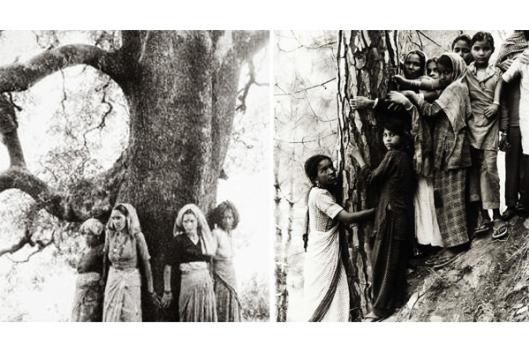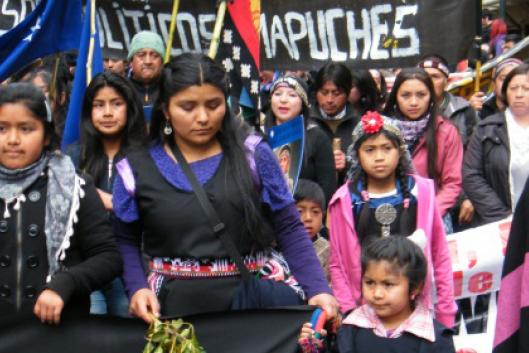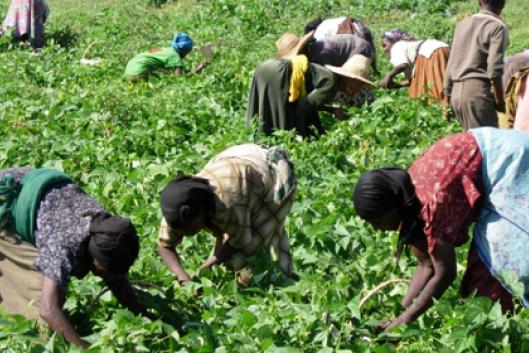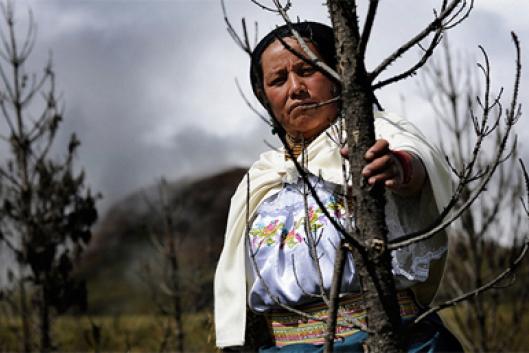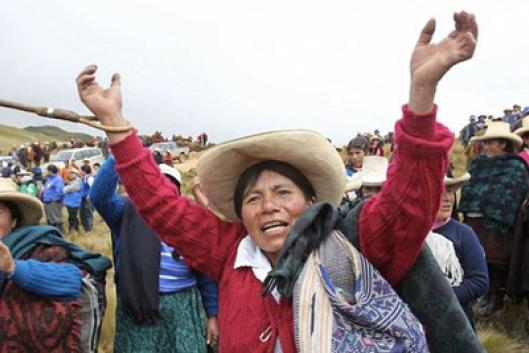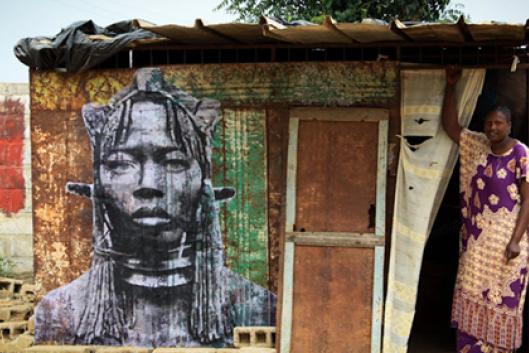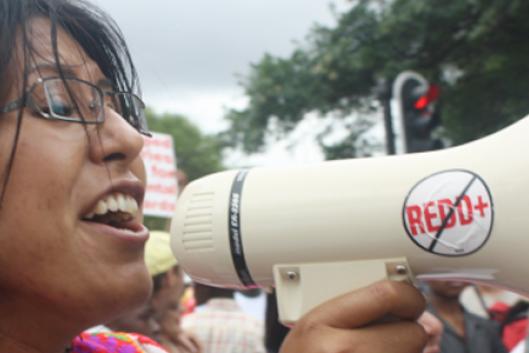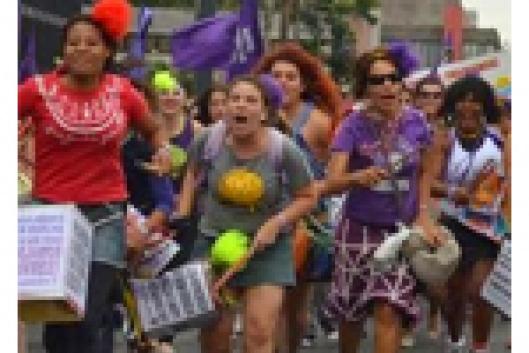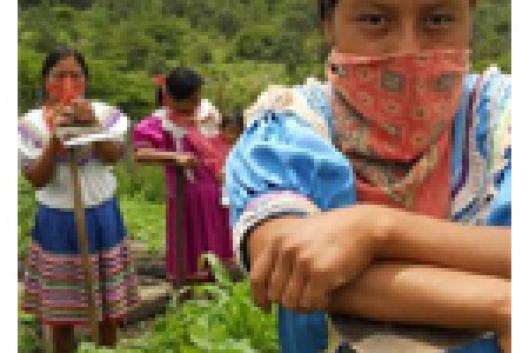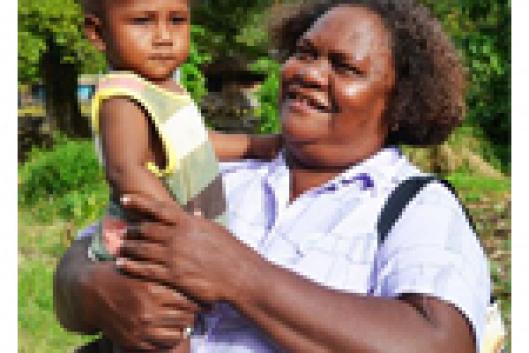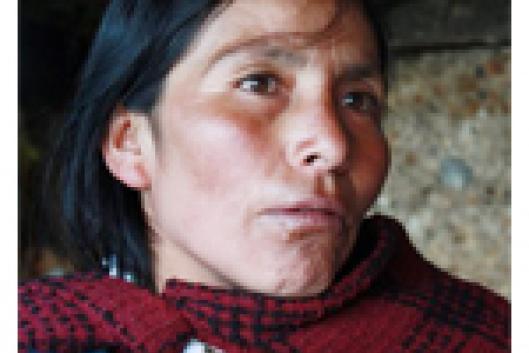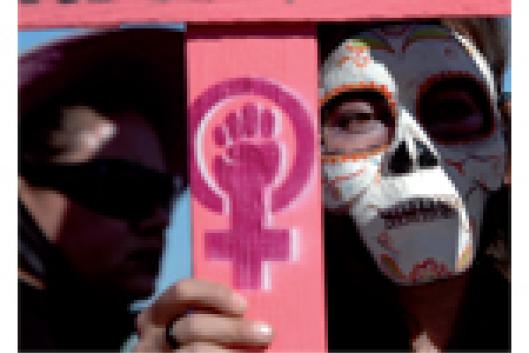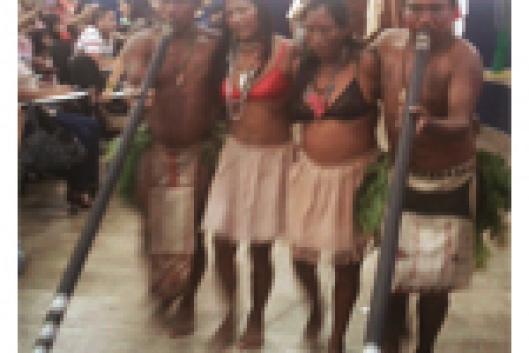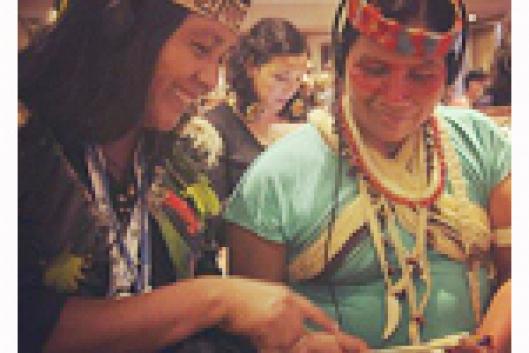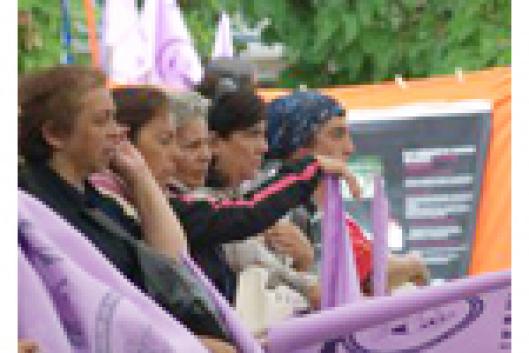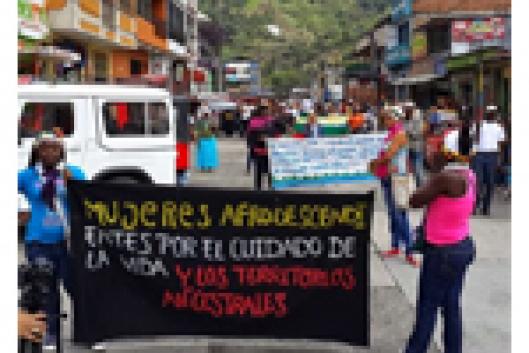March 8 is not just a day to celebrate and give visibility to women’s struggles, it is also a day to remember and appreciate the valuable inspiration they provide for every other struggle today. One example is the Chipko women’s movement in India, and the struggle they have led for nearly 40 years to protect forests and resist tree monocultures.
Bulletin Issue 211 – February 2015
Women resistance: defending territories and life
WRM Bulletin
211
February 2015
OUR VIEWPOINT
WOMEN RESISTANCE: DEFENDING TERRITORIES AND LIFE
-
11 March 2015Throughout history, indigenous women have been committed to the struggles of their peoples and communities, although often their contribution has been invisible in the dominant official version of history. Indigenous Mapuche women like Fresia, Guacolda or Janequeo won renown for their bravery in battle against the Spanish colonizers. They inspired chroniclers like Alonso de Ercilla y Zúñiga to write his epic work “La Araucana,” which recognizes and sympathizes with the indigenous peoples’ claims in its narration of the war between Spaniards and Mapuche.
-
11 March 2015The government of Gabon adopted a new ‘Sustainable Development’ Law in August 2014. This Law is the first that introduces credits not only for carbon or biodiversity (1), but also for ‘community capital’, the latter being defined as the “sum of the natural and cultural assets belonging to a community.” Without further explanation, ‘community capital’ could include things like community lands, crops, water resources, culture, or education. In this context, women stand to be the most affected as they are most often the care-takers, educators, medicine makers and the ones growing food within communities.
-
11 March 2015Twenty years ago, a Dutch company paid communities to establish pine tree plantations in the high mountains of Ecuador. The aim was for the trees to absorb carbon dioxide to "offset" the emissions generated by a thermoelectric plant built in The Netherlands. In 2001, the community of Mojandita de Avelino Ávila signed an agreement with Ecuadorian company Profafor, a subsidiary of the Dutch consortium FACE. The project changed the use of the lands formerly used for livestock grazing and agriculture, while destroying important water sources and sacred sites.
-
10 March 2015Conga: Lagoons versus mines “I had never been to the lagoons before the marches began and we had to go and defend them. The Elders said that (the Celendín lakes) were sacred, no one was allowed to set foot there, they were the sites for sacred ceremonies and traditional healers came here to collect medicines. The Elders called this place Conga,” said a young rondera (peasant patroller) from Cajamarca when she saw the lagoons.
-
10 March 2015In recent decades, the sustainable management of natural resources and the conservation of biological diversity have become a major concern at all levels. On the African continent, threats to forests are rapidly increasing with the penetration and expansion of multinational corporations that benefit from the complicity of governments. But facing these threats are the determination and commitment of grassroots communities, and especially women. Like the Amazon warrior women of King Béhanzin (in the 19th century), more and more of them are rising up, creating a powerful barrier against the destruction of ecosystems, and particularly forests.
-
10 March 2015The meaning of the term “safeguards” depends on who uses it and in what context. It may imply positive action in terms of human rights or the environment, or it may simply be a rhetorical flourish aimed at preventing losses of investments and profits. Nowadays there is much talk around the world about safeguards for the implementation of REDD+ (Reducing Emissions from Deforestation and Forest Degradation) projects, conservation, sustainable forest management and increasing forest carbon stocks. (1)
PEOPLES IN ACTION
-
11 March 2015March 8, International Women’s Day, is also the launch date of the World March of Women’s (WMW) Fourth International Action. The World March of Women takes place every five years and through it, feminist organizations from every continent give voice to their struggles and demands. The Action is decentralized and comprises demonstrations, street actions, workshops, training events and other activities that will last until October 17. See the Call to Action at: http://www.dunyakadinyuruyusu.org/index.php/duyurular/3-women-on-the-march-until-we-are-all-free,
-
11 March 2015The international network of peasants, La Via Campesina, calls for the coordination of actions during the International Women’s Day to highlight the fundamental role played by women in guaranteeing Food Sovereignty. On this day of struggle, it denounces the prevailing violence, against women specifically, because the agribusiness model, patriarchy and the capitalist interests in the countryside have exacerbated social and gender inequalities. In this context, Food Sovereignty is key not only as a means of confronting the food crisis but also as an essential ethical principle that has as its basis social justice and equality.
-
11 March 2015When mining and logging companies come to villages asking for resource rights, how can communities make an informed decision without truly understanding all the impacts that these activities entail? Moira Dasipio, 55, lives and works in the Isabel Province of the Salomon Islands and is determined to give local populations access to more information about large-scale projects. Providing clear information on the real effects of plantations or logging is crucial as the country’s economy is based mostly on the industrial production of logs, tuna, gold, and palm oil. Yet, Dasipio has a long way to go. “We are striving [for] ourselves, my women, and all people. We are all working together for a better future.”
-
11 March 2015Máxima Acuña, a mother of four in the northern Andes of Peru who was never able to learn to read or write, won a lawsuit against the Yanacocha mining company, South America’s leading gold producer. In spite of this, the company has continued its violent intimidation against her. So far in 2015, Máxima has been threatened at least twice by police and agents for Securitas, Yanacocha’s private security firm, entered her property. On February 12, a World Day of Solidarity with Máxima was held. See the full article (in Spanish) at: http://servindi.org/actualidad/122765
-
11 March 2015El Salvador has the highest rate of femicide in the world, Guatemala the third and Honduras the seventh. In Guatemala and Honduras only 2% of murdered women’s cases were investigated in 2013. And in El Salvador, in 2014 alone, between January and October, over 300 women between the ages of 12 and 18 years were found in unmarked mass graves. The victims of femicide often show signs of torture, rape, or breast and genital mutilation and dismembered body parts.
-
11 March 2015Leaders of indigenous peoples of the Brazilian Amazon participating in the World Social Forum on Biodiversity held in Manaus, Brazil in January 2015, repudiated countless actions by the Brazilian state that violate the national constitution and international law.
RECOMMENDED
-
11 March 2015On December 8, 2014, a group of extraordinary women leaders gathered in Lima, Peru during the UN climate negotiations to speak out against issues of social and ecological injustice, and to share stories and plans of action for building a liveable, equitable world. Indigenous women from different places shared their experiences and struggles. As Patricia Gualinga, Indigenous Kichwa leader of Sarayaku, Ecuador, said, “The destruction of nature is the destruction of our own energy and of our own existence here on Earth. The destruction of our spaces is the destruction of indigenous populations. And even though you might not believe this, this is your destruction, as well”.
-
11 March 2015Radio Mundo Real produced a special program on caring for Nature, highlighting the voices of women from different Latin American organizations who participated in the ANAMURI congress. Listen to the program (in Spanish) at: http://radiomundoreal.fm/8114-la-tierra-es-madre
-
11 March 2015An article by Charo Rojas, Marilyn Machado, Patricia Botero and Arturo Escobar charts the cumulative processes that have infringed the rights of Afro-descendant populations and destroyed their territories. These processes, they say, are of such magnitude that they may be regarded as crimes against humanity, ecocide and ethnocide. The defence of ancestral territories clashes head-on with the one-dimensional, neocolonial, capitalist and Eurocentric notion of individual ownership of land as the economic means of production and exploitation. Women have been the key factor in this resistance. Many of them have shed their blood on the land they defended in order to create hope for a decent life for their children.
-
11 March 2015The video by Radio Mundo Real on Financialization of Nature was produced in collaboration with the Biodiversity Alliance, Friends of the Earth Latin America and the Caribbean and the World Rainforest Movement. The video attempts to explain what financialization of nature is, what mechanisms it employs, what it does in the territories, its impacts and the resistance it generates.
